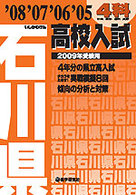Full Description
The edited volume discusses the long period of post-colonial developments in higher education in India. It examines the legitimacy of the policies pursued post-pandemic with a focus on the role of teachers and the students' voices. It addresses the essential question of how the technological ascendance in higher education addresses social justice. What is the role of teachers in a new landscape of higher education? It offers insights into the efficiency-centric proposition of the state-market-technology triad, the current paradigm of higher education worldwide. It presents evidence to understand how efficiency has a tradeoff with various aspects of social justice. The authors deal with questions, such as the challenges of privatization and how the commodification of higher education runs counter to the idea of inclusive higher education. The authors critically look at the online form of higher education and how it has led to the shrinkage of democratic spaces in higher education. It discusses the transformative role of teachers with increasing managerialism of higher education. The book highlights a deep understanding of the increasing role of the market and technology and their influence in negating an inclusive and democratic public space in higher education. It appeals to teachers and students by enabling them to understand the market's and technology's impacts on higher education. It has the potential to be a reference book in colleges and universities. It will help the large community of practitioners and policymakers guard against the dangers of overt marketization. The book benefits policymakers, university administrators and teachers, and researchers of higher education interested in governance, technology, teaching, and research in higher education.
Contents
Chapter 1: HigherEducation - State, Market and Technology Triad and its Implications.- Chapter 2: The necessity for a Decolonization of the Mind.- Chapter 3: The Agenda of Post-colonial Education.- Chapter 4: Breaking a Brand: The trials and Tribulations of JNU.- Chapter 5: Educational Policies and the New Normal: Multiple Pathways to Exclusion.- Chapter 6: Pandemic through the Lived Experiences of Educator and Educated: Becoming 'Disenchanted' from the 'University Life'.- Chapter 7: The Quest for Social Justice: Identity and Everyday Student Politics during Pandemic.- Chapter 8: Reframing idea of social justice in Indian higher education.- Chapter 9: COVID-19 and digital learning in higher education in India: Unpacking the realities through socioeconomic and regional lenses.- Chapter 10: Indian Women and The Promise of Higher Education: an Intersection of Dreams, Expectations and Negotiations during Lockdown.- Chapter 11: Higher Education, Technology and the Social Imaginary of Science: Problematics and Futures.- Chapter 12: Economics of Online Higher Education in a post pandemic India.- Chapter 13: Invasion of MOOCs: A Historical and Critical Dialogue.- Chapter 14: The Digital University: Concerns around critical, dialogic and empathetic pedagogy.- Chapter 15: Anatomy of Select e-platforms: Meso and Micro Dynamics.- Chapter 16: Student Activism and Digital Education- A case Study of Jawaharlal Nehru University.- Chapter 17: Busting Myths and Revealing Fears: Technostress among.- Chapter 18: Teaching in the post Covid period: The questions of New normal and abnormal?- Chapter 19: An Exploration of Higher Education Teacher Education programmes: During and post-COVID-19 pandemic.- Chapter 20: The Pandemic, Teacher Education and Inclusion: Conceptions, Contestations and Confusions.




